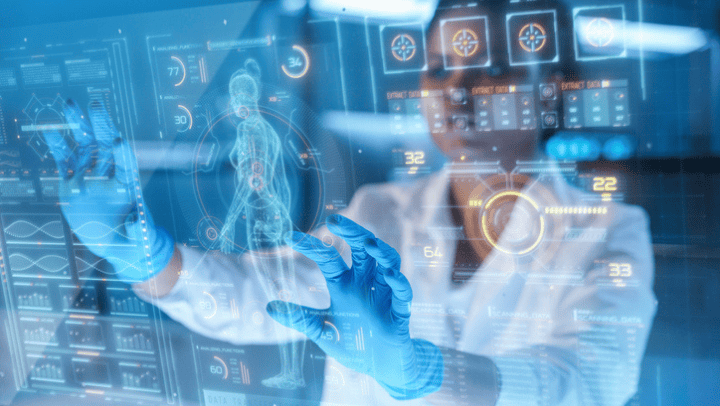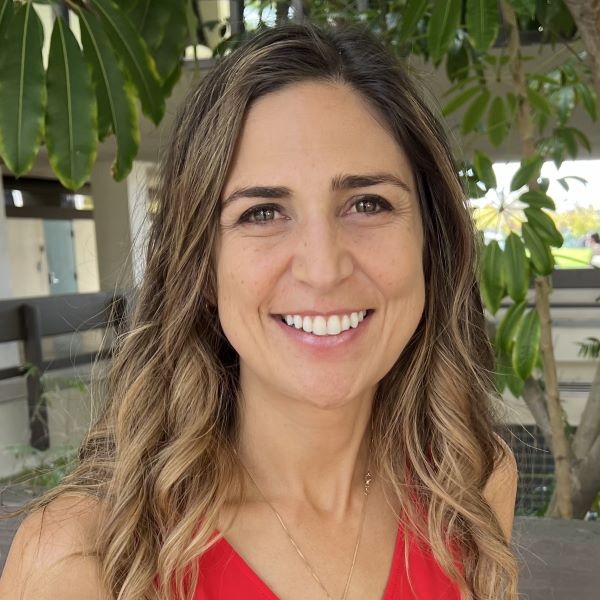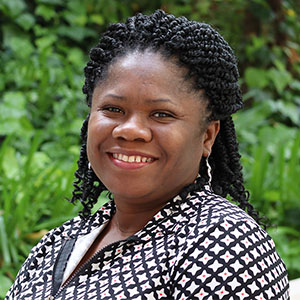National Nurses Week: How an SDSU nurse-scientist is transforming health care with AI
SDSU’s Rebecca Mattson pioneers AI-driven research to detect lung cancer sooner and deliver real-time nutritional support for pregnant women.

As National Nurses Week highlights the contributions of nurses across the country, San Diego State University assistant professor and nurse-scientist Rebecca Mattson is at the forefront of compassion and cutting-edge innovation. Her research leverages artificial intelligence and machine learning (AI-ML) to address two urgent public health issues: early detection of lung cancer and improving maternal nutrition.
 Open the image full screen.
Open the image full screen.
“I chose nursing to be part of something larger than myself—to offer care that is grounded in empathy, guided by knowledge and aimed at creating lasting change,” said Mattson.
She works closely with Uduak George, SDSU associate professor of mathematics and the project's principal investigator. The team is building an AI model to spot lung cancer and chronic conditions linked to higher risks of heart disease, stroke and type 2 diabetes sooner than current screening methods. George built AI algorithms to train the model to study anonymous medical records from tens of thousands of people.
“The sheer amount of this data enables us to train a model to capture subtle patterns, potentially allowing for the identification of lung cancer risk, which we hope will yield information to guide early interventions and mitigate the risk of lung cancer."
 Open the image full screen.
Open the image full screen.
“Our goal is to integrate social, behavioral, and clinical data into one interpretable model—something that can be used by providers during routine care to catch disease sooner,” Mattson said. “The earlier a cancer is detected, the sooner treatment can begin, which generally leads to better outcomes.”
Beyond oncology, Mattson also leads research in creating an AI-powered website to provide real-time, personalized nutrition guidance to pregnant women, particularly those with conditions such as gestational diabetes and gestational hypertension.
Mattson is developing the website prototype, working with SDSU’s ZIP Launchpad, an innovative resource center that supports students, staff, faculty and researchers in launching startups from early-stage ideas.
“The prototype AI model provides the same medically evidence-based nutritional sources as a pregnant woman would receive from an obstetrician, midwife or registered dietitian for each trimester,” she explained. “It’s also designed to track nutrition throughout the pregnancy.”
Currently in the pilot phase, Mattson is gathering feedback about the project from pregnant women through the REDCap AI Pregnancy and Nutrition survey.
“Ultimately, I believe AI-ML tools are about making health care more proactive, more personalized, and more accessible,” Mattson said.
As a nurse and researcher, Mattson is quick to say AI is not a replacement for human care but a tool to enhance it, particularly in the hands of nurses.
“We are not bound by a single context or limited to one environment–we are called to serve where our capacities are most impactful,” she said in honoring nurses, especially this week.
The NIH AIM-AHEAD program (Artificial Intelligence/Machine Learning Consortium to Advance Health Equity and Researcher Diversity) was established in 2021. Its researchers and clinicians use partnerships with researchers and communities to ensure health care technologies serve all populations equitably, improving access, quality, value, and outcomes especially for those most at risk of inequities.



